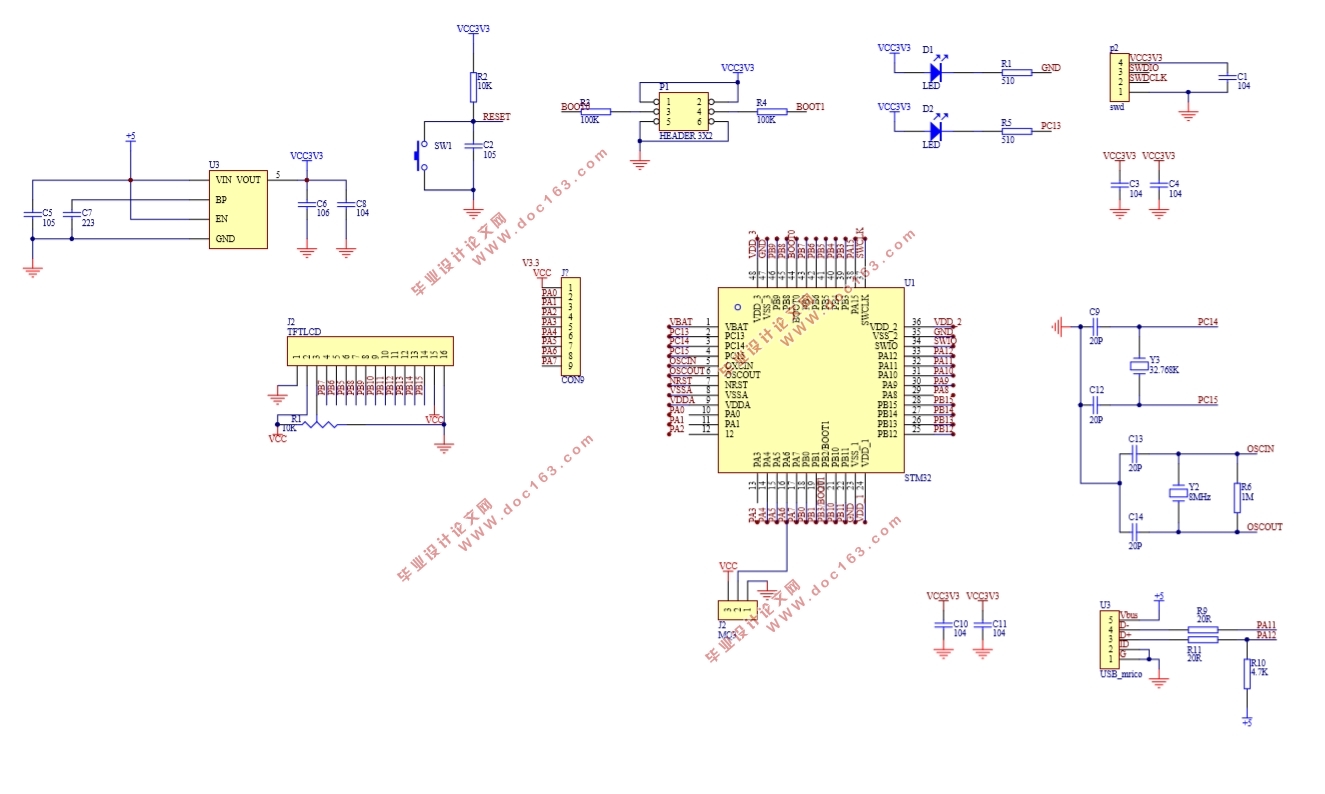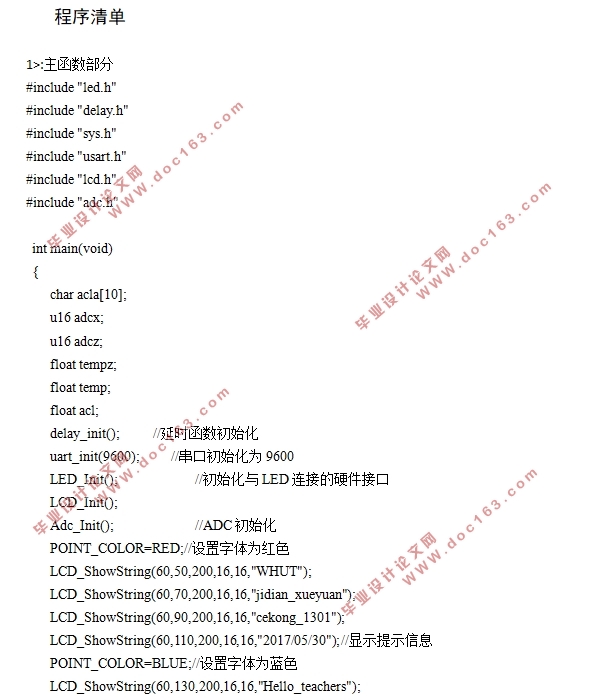基于单片机的酒精浓度检测仪的设计(附电路图,程序清单)

1.无需注册登录,支付后按照提示操作即可获取该资料.
2.资料以网页介绍的为准,下载后不会有水印.资料仅供学习参考之用.
密 惠 保
基于单片机的酒精浓度检测仪的设计(附电路图,程序清单)(任务书,开题报告,论文14000字)
摘要
本文设计了一种基于ARM内核单片机的具有报警功能的呼气式酒精检测仪,该系统的硬件部分主要包括,主控芯片Stm32单片机,酒精传感器模块,AD转换电路,以及TFTLCD显示屏幕,通过软件设计对传感器把外界酒精浓度转换输出的模拟信号通过ADC进行采样,将转换后的数字量通过显示模块进行显示的一种酒精浓度检测仪,系统可以实现酒精检测功能,进而了解到驾驶者是否为酒后驾车,让驾驶者认识到安全驾驶的重要性,从而认识到酒后驾车的危害,这个在现代生活可以广泛使用,通过单片机设计酒精检测仪较传统机械检测仪具有更高的精度,测量精度可达到0.1mg/L,并且单片机扩展性强,并具有很大限度的可控性,所以所以基于单片机设计酒精浓度检测仪具有一定的研究价值。
关键词:单片机;Stm32;酒精传感器
Abstract
This paper designs an alarm-based alcohol detector with alarm function based on ARM core microcontroller. The hardware part of the system mainly includes main chip Stm32 single chip computer, alcohol sensor module, AD conversion circuit and TFTLCD display screen. An alcohol concentration detector is designed for sampling the analog signal output from the sensor to the outside world by the ADC and the converted digital quantity is displayed by the display module. The system can realize the alcohol detection function and understand whether the driver is Drunk driving, so that drivers recognize the importance of safe driving, so as to recognize the danger of drunk driving, this can be widely used in modern life, through the single-chip design of alcohol detector than the traditional mechanical detector with higher accuracy, Precision can reach 0.1mg / L, and single-chip expandability, and has a large degree of controllability, so based on single-chip design of alcohol concentration detector has a certain research value.
Key Words:microprocessor ;Stm32; Alcohol sensor


目录
第1章绪论
1.1 研究的目的及意义 1
1.2 国内外的研究现状 1
1.3 课题研究路线 2
第2章系统方案设计 3
2.1 单片机的选择 3
2.2 传感器的选择 3
2.3 显示模块的选择 4
2.4 本章小结 5
第3章硬件电路部分 6
3.1 单片机部分 7
3.2 传感器部分 8
3.2.1传感器硬件电路部分 8
[资料来源:http://THINK58.com]
3.2.2传感器输出和酒精浓度的关系 9
3.2.3 对于传感器的标定 10
3.3显示电路部分 10
3.4 ADC模拟-数字量转换模块 11
3.5 本章小结 12
第4章软件设计部分 13
4.1功能设计 13
4.2 TFTLCD模块 14
4.3 ADC软件设计 19
4.4 本章小结 21
第5章系统的调试 22
5.1 单片机的调试 22
5.2 传感器的调试 22
5.3 TFTLCD屏幕的调试 22
5.4 整体系统的调试 23
5.5 系统实物演示 23
5.6 本章小结 26
第6章标定与误差分析 27
6.1 系统的标定 27
6.2 误差分析 28
6.3 本章小结 28
第7章总结 29
參考文献 30 [资料来源:http://THINK58.com]
致谢 42 [资料来源:http://www.THINK58.com]
